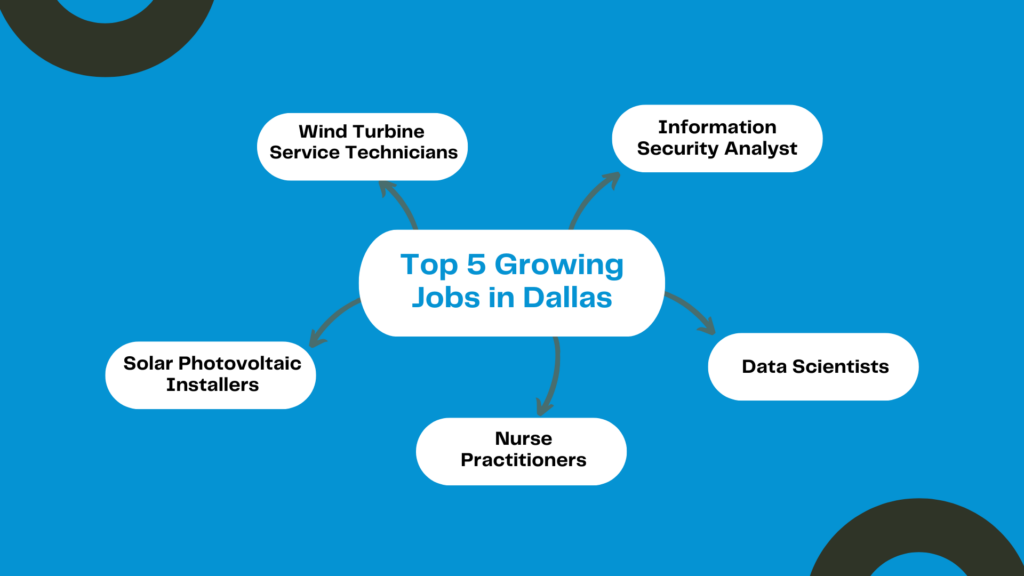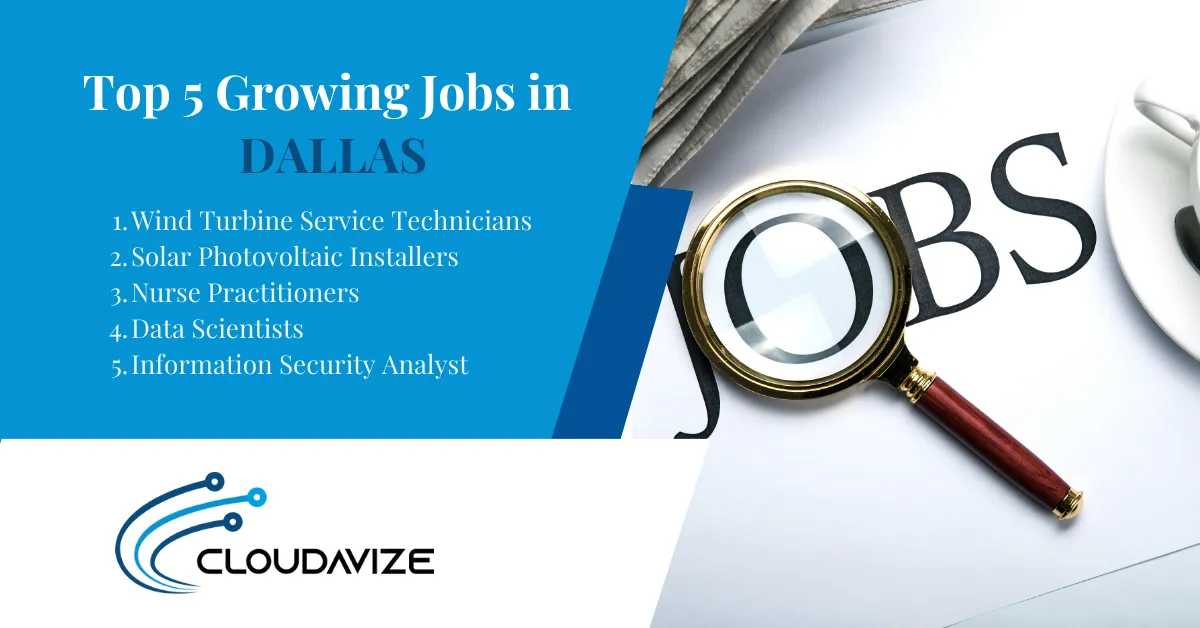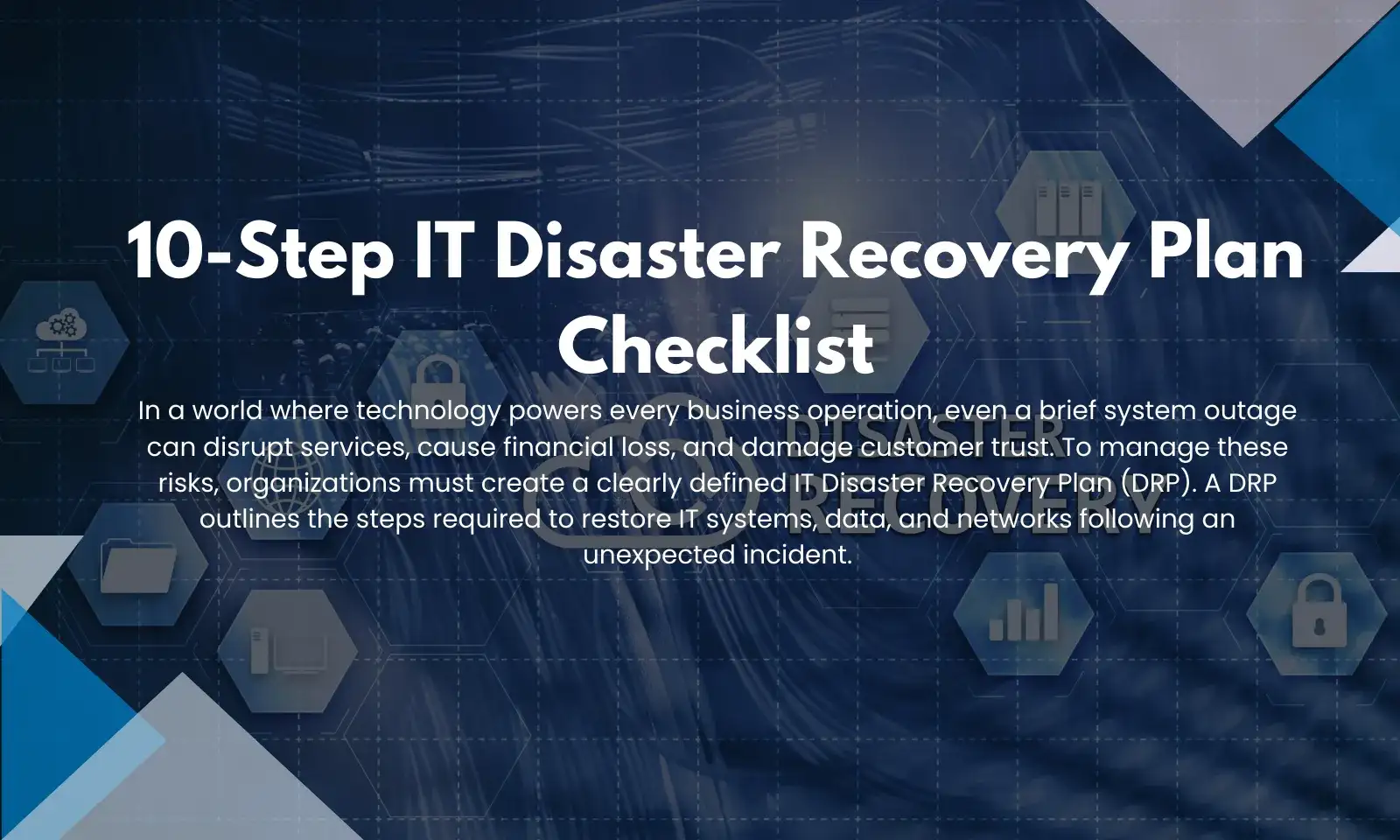The top jobs in Dallas are wind turbine service technicians, solar photovoltaic installers, nurse practitioners, data scientists, and information security analysts. With salaries ranging from $48,800 to $126,260 and growth of 33% to 60% over the next 10 years, these jobs are hot in the US market. They power Dallas’s economy by driving renewable energy, healthcare, and tech innovation, making it an excellent place for job seekers and professionals seeking meaningful work.
These jobs drive Dallas’s growth, fueled by a strong tech industry and renewable energy investments. For example, Texas is #1 in wind energy production with over 40,500 megawatts of installed capacity, over 26% of all US wind-sourced electricity. The city’s tech sector is also strong, with Dallas-Fort Worth having the 6th largest tech workforce in the US, with 329,347 tech workers. With world-class infrastructure and educational programs, these jobs meet industry needs and strengthen the city’s economic backbone for businesses and employers.
Top growing jobs in Dallas are:
- Wind Turbine Service Technicians
- Solar Photovoltaic Installers
- Nurse Practitioners
- Data Scientists
- Information Security Analyst

Table of Contents
Wind Turbine Service Technicians
Wind turbine service technicians keep wind turbines operational by handling maintenance and repair work to produce renewable energy. Technicians diagnose problems, ensure safety compliance, and maintain turbines. They are key to Dallas’s energy infrastructure and the country’s goal of reducing carbon emissions. Wind turbine technicians in Texas earn a median annual salary of $61,770 and only need a postsecondary non-degree education to qualify for this job. This is an accessible career that contributes to green initiatives.
Texas is the number one state in wind energy and has seen a 600% increase in job postings in 5 years. The Lone Star State alone has seen a 25% growth in job postings for this profession. With government incentives and investments in sustainable energy sources, this career is expected to take off. The Bureau of Labor Statistics predicts a 60% growth in employment from 2023 to 2033 as the entire United States continues to rely more on wind energy.
The managed IT services enable wind turbine technicians to access the IT infrastructure, monitor in real-time, and conduct remote diagnostics with security data management. The service enables them to swiftly identify issues with turbines and fix them for full functionality.
Solar Photovoltaic Installers
Solar photovoltaic (PV) installers help meet the growing demand for renewable energy by installing and maintaining solar panels for homes and big projects. These professionals ensure proper installation, optimize panel performance, and troubleshoot systems to meet sustainability goals. In Texas, where solar energy is booming, this is an entry-level job with a median annual pay of $48,800 that requires only a high school diploma or equivalent. According to the Bureau of Labor Statistics (BLS), solar PV installer jobs are expected to experience 48% growth from 2023 to 2033, which is key to reducing greenhouse gases and achieving energy independence.
Texas’s solar energy leadership is driven by big projects, residential installations, and government incentives. Employment will grow from 25,000 (2023) to 37,000 (2033), with a projected 4,100 annual openings to fulfill the growing need for this skilled profession. This growth means solar PV installers are key to addressing climate change and energy transition.
Managed Service Providers (MSPs) help solar PV installers by providing remote performance monitoring, predictive maintenance alerts, and real-time analytics for solar systems. These tools improve installation accuracy, enable quick troubleshooting, and ensure panels operate at peak performance so installers can deliver energy solutions and meet growing sustainability demands.
Nurse Practitioners
Nurse practitioners (NPs) are highly trained healthcare professionals with advanced education and training who can provide services like physicians. They conduct physical exams, diagnose illnesses, prescribe medications, and manage patient plans. NPs focus on preventive care and health education and play a significant role in addressing many healthcare needs. With a median annual salary of $126,260 and a master’s degree or higher required, this is a competitive career that contributes significantly to the healthcare community.
The demand for NPs in Dallas is driven by an aging population, healthcare expansion, and preventive care. With a shortage of primary care physicians, NPs fill the gaps, especially in underserved areas. National employment for nurse practitioners is projected to grow 40% from 2023 to 2033 (from 349,600 to 490,800), with 31,900 annual job openings, reflecting their valuable contribution to the evolving healthcare landscape.
Through managed service providers, NPs can access cloud-based EHR platforms, data encryption systems, and real-time access dashboards for managing patient records. These tools simplify data entry, ensure HIPAA-compliant access, and allow patient information to be shared across care teams. By reducing administrative tasks and increasing efficiency, MSPs let NPs focus on patient care.
Data Scientists
Data scientists innovate by digging into complex data to get actionable insights so businesses can make informed data-driven decisions. They use skills like data analysis to interpret big data, find trends, and guide strategy. They have proficiency in languages like Python and R to manipulate, visualize, and develop models. Their expertise in machine learning helps create predictive algorithms, automate decisions, and design solutions to real-world problems. With a median salary of $108,020 and a bachelor’s degree required, this is a lucrative career in Dallas’s tech scene.
Dallas’s growth as a tech hub attracts startups and established tech, healthcare, and finance companies, so there’s a high demand for data scientists who can analyze complex datasets and get valuable insights. This ecosystem is collaborative and innovative, where data scientists are key to operational efficiency and strategic initiatives. Employment is expected to grow from 202,900 in 2023 to 276,000 by 2033, a 36% increase, with 20,800 new jobs annually.
Services from MSPs give data scientists the necessary tools, like cloud-based analytics platforms (AWS, Azure ML), to scale data processing and collaborative model development. They also provide high-performance computing resources (GPU clusters) for big data and complex algorithms and secure data storage solutions (encrypted cloud storage by Google Cloud) to keep data private and compliant. These tools simplify workflows, increase productivity, and let data scientists deliver insights faster.
Information Security Analysts
Information security analysts protect companies by defending digital assets and reducing cyber risk. They need to have cyber knowledge, including knowledge of security protocols, threat detection, and incident response. They also require strong problem-solving skills to find vulnerabilities and implement solutions and risk management skills to assess threats and prevent breaches. These skills allow analysts to design and maintain secure systems. This profession pays you a median salary of $120,360 and requires a bachelor’s degree with less than 5 years of experience. The average annual pay for information security analysts in Dallas-Fort Worth, Texas, is $116,243.
The demand for information security analysts is growing as cyber attacks like ransomware and data breaches become more frequent and affect companies of all sizes. As companies realize the financial and reputational risk of cyber incidents, they hire security experts to increase their resilience. In Dallas, a growing tech hub, top companies across industries invest in cybersecurity roles to protect their businesses. This drives projected growth from 180,700 in 2023 to 239,800 by 2033, a 33% growth rate of 17,300 new jobs annually.
Managed IT services and MSPs support information security analysts with tools like cloud-based incident response platforms (IBM QRadar) to coordinate breach response and secure network monitoring solutions (SolarWinds) for real-time threat detection. These tools make tasks more efficient, allow proactive security, and strengthen defenses so analysts can protect organizations from evolving cyber threats.



